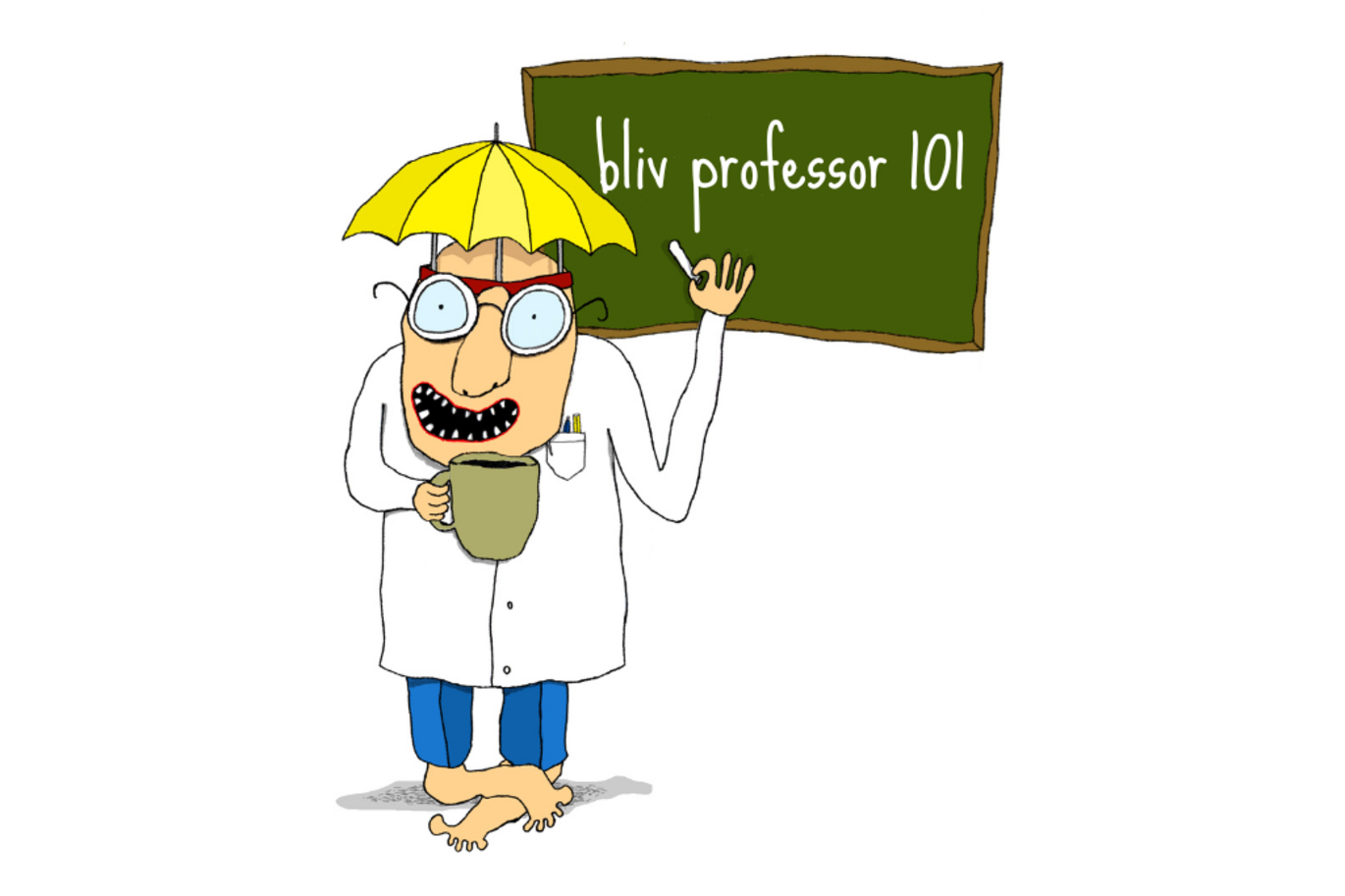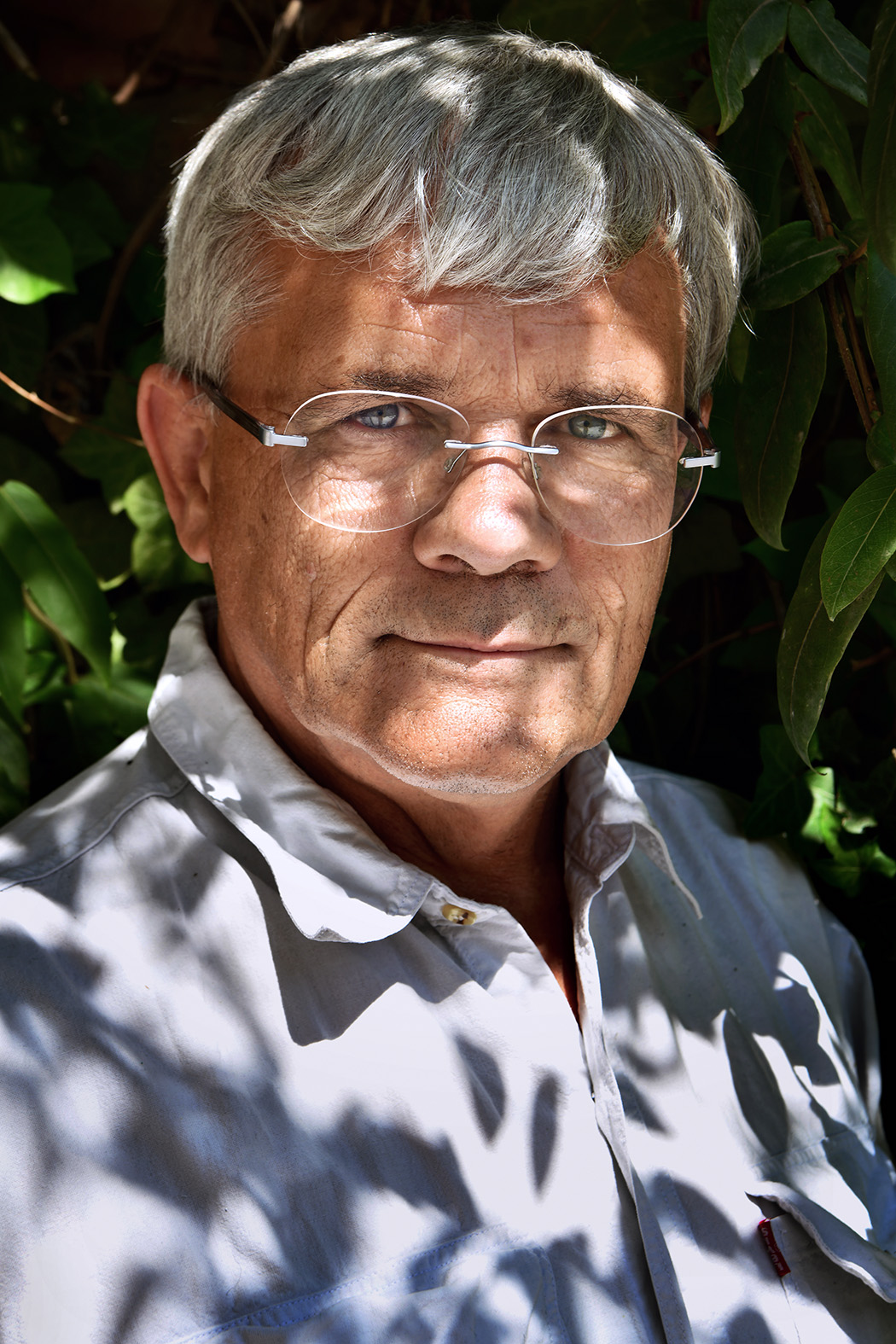COLUMN: How to become a professor at Aarhus University – a student’s guide
After 26 years at Aarhus University, Peter Bakker, associate professor of linguistics, offers a complete and first-hand guide to becoming a permanent member of staff at the university – perhaps even to attaining the coveted professor title.



I once heard about a student whose sole ambition was to become a professor at Aarhus University. And he succeeded. He did indeed become a professor.
In the quarter-century I’ve been at AU, I’ve met several students with the same ambition. Some made it, and some didn’t. In my experience, the decisive factor is whether you are – or become – captivated by your subject. Because this makes you a good scholar. But it isn’t the whole story. In this column, I offer tips to students aiming to become associate professors or professors at AU.
Start early – preferably before you’re born
Start early. Preferably before you’re born. If you can, opt to be born into a family of academics. Research has shown that they do better than those from non-academic families.
Then, of course, you must pass your upper secondary school leaving exam. And be admitted to a Bachelor’s degree programme (three years). But choose your subject wisely. Take the Faculty of Arts for example. At anthropology and theology, almost half of permanent members of staff are professors, while at history and global studies, this falls to less than a fifth. So perhaps anthropology or theology would be a safer bet? Or maybe it would be wise to choose a subject with fewer professors, just in case the management decides to balance figures across the departments?
After your Bachelor’s, you need to take Master’s degree programme (two years) and then – finally – you have to secure a PhD fellowship (three or four years) and write a PhD dissertation or three academic articles.
A long and lonely process
Once your PhD is in the bag, you should expect to be employed in a number of temporary positions that require you to research, publish and teach (most often as a postdoc); after this, you may be given an assistant professorship for three years. Yep, it’s a long and lonely process.
Once you’ve got this far, you may – if you’re lucky – get a permanent position as an associate professor. The next and final step on the academic career ladder is to become a professor – a position you’ll keep until retirement. Yet most associate professors never make it to professor.
At all stages, you have to be one of the best in your field. It is only in Norway that academic staff are promoted to professor almost automatically after a stint as associate professor. The famous Norwegian model! But this is not the case in Denmark. Especially not in Aarhus.
Use buzzwords like transdisciplinary
Can’t you do anything to make yourself stand out as a researcher, you may ask? Perhaps by acquiring management experience, being an exceptionally good lecturer, publishing in the best scientific journals or writing long books – or all of the above? This might help a little. But what really makes a difference is attracting research funding that brings money to the university. After this, it’s less important whether you publish your results or not. It’s also a good idea to practise using buzzwords and following new research trends. Right now, trendy words include digital, assemblage, transdisciplinary, affectivity, de-/post-colonial/human, gender, mediality and cognition. Some terms never go out of fashion, like innovative, global and paradigm shift. Embodiment and generative, in contrast, are last season.
(Good) luck...
First and foremost, you need to be incredibly lucky. Almost everything is down to chance. There are several factors that are simply beyond your control. The university, for example, might have a strategy that your research needs to fit into. If you’re declined a professorship, the management will most likely claim that either you or your research does not match AU’s strategic priorities. But strategies constantly change. And new criteria are constantly added.
Even if you meet all the parameters and criteria (you have management experience, you have published in recognised journals, attracted external research funding and acquired teaching experience) there may be others who get the coveted job instead of you. The strategy and criteria may have changed. Or the newly promoted may have had lunch with the right people.
Those with merit – or those with future promis
Some companies celebrate their ‘employee of the year’ – a person who has sold the most washing machines or packed the most boxes. But at AU it is not always employees with the most merit who are recognised but those deemed able to surpass them in the future. This may sound strange, but, at Arts, it is employees who demonstrate future promise – not necessarily past excellence – who are selected to take the new promotion to professor training programme, before their actual professor title has been conferred.
So there are some things it’s difficult to do anything about. But nothing is impossible. Women are underrepresented in academia, especially at the highest levels, and AU is now rightfully trying to redress the balance in women’s favour. Though having a sex-change is somewhat drastic. A surname that ends in -sen could be an advantage. And if you don’t have one, you can always buy one, if the Danish naming law allows. If you’re a believer, you could try praying. And it’s worth showing your face at lunch. Sit close to those in power. Make your ambitions heard – but not too obviously.
Don’t get your hopes up too soon...
Perhaps you’re lucky enough to get a permanent position at university. But don’t get your hopes up too soon. Your job could be on the line if energy bills are too high, if AU has mismanaged its investments, or if the government proposes plans to ‘improve’ universities: shorter degrees, fewer programmes and relocations... Then the whole endeavour could have been for nothing.

